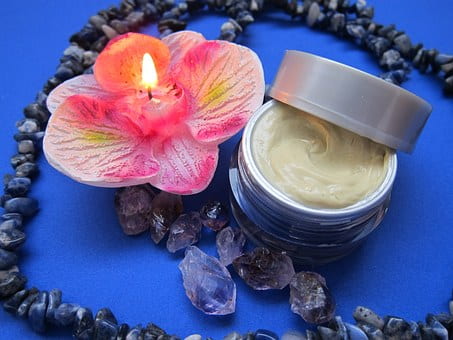
Am I good-looking? Do I look Attractive? These are questions that most adults would have asked, standing in front of the mirror. The notion of beauty is to make you feel great and confident. Even in ancient days, beauty was not innate and biological. People found ways to groom themselves since time immemorial. They had kohl for eyes, castor oil for shine, beet juice for rosy cheeks, and red berry juice and crushed gemstones as the lip rouge.
But our relationship with lemons was not very friendly. They were too tangy and were a symbol of difficulties. Remember the famous saying when life gives you lemons.
But now the same lemon is reining the beauty world. It is a rich source of vitamin C.
Vitamin C is well-known as an immunity booster that helps you reach the pink of health. You can also have a flawless, firm skin. Now, this vitamin C is the ingredient of many products ranging from face wash to hair serums.
Let us check here to know the benefits of adding vitamin C in our skincare regimen:
- Vitamin C in the layers of our skin:
The outer layer of our skin is known as the epidermis. The dermis is the inner layer of the skin. Both the dermis and epidermis have high contents of Vitamin C., But as we age, the levels of vitamin C in our skin decreases. It can also decrease due to high exposure to Sunlight and pollutants. So, we should include it for having healthy skin.
- Promotes the synthesis of collagen:
Collagen is the protein responsible for the structure of the skin. It also makes the skin look supple and imparts the right amount of flexibility. Vitamin C is vital for synthesis and hydroxylation of collagen molecules. The hydroxylation process makes the skin more firm. In this way, vitamin C prevents wrinkling and loosening of the skin. It makes your skin look young and healthy.
- Protects the skin from free radicals:
Free radicals are reactive compounds present in pollutants. Ultra violets rays from the Sun can induce the formation of these radicals. They cause severe harm to the skin, and this damage is known as photo-damaging. The free radicals from UV rays are so lethal that they even affect the DNA. Vitamin C is an excellent antioxidant. It neutralizes these radicals by providing electrons, thus rendering them inactive. It also increases the level of vitamin E, which hydrates the skin and heals the damages of UV radiation.

- A depigmenting agent:
Melanocytes are present on the outer surface of our skin. They produce melanin: a brown pigment that gives us the skin color. When we are under the bright rays of the Sun, the melanin pigments gather together and block the rays from penetrating inside the skin. They protect the skin but leave a tan and cause hyperpigmentation. Vitamin C can lighten the skin by oxidizing melanin. Thus, it aids in the brightening of the skin.
- Vitamin C for skin hydration:
Compounds of vitamin C, such as magnesium ascorbyl phosphate, can prevent water loss from the skin layers. They promote the synthesis of lipids, which act as a barrier to the evaporation of water. So vitamin C can be used for treating dry skin.
- An ingredient of sunscreens:
Combinations of vitamin E and C can prevent the skin from UV rays and also from tanning. We need to use both the vitamins together. Vitamin C is responsible for reducing the effect of skin damage, and vitamin E help with the stability of the product. Thus, they are both necessary to prevent the entry of Sun rays into the skin.
- A Vital role in the healing of wounds, acne lesions:
When you get hurt or have inflammations, the number of free radicals increases. Vitamin C not only neutralize them but also aid in the synthesis of collagen and keratinocytes. These molecules are responsible for the formation of stratum corneum (the outermost layer of the skin). The same function of vitamin C helps in the removal of acne lesions and scars.

Vitamin C is present in the form of L and D Ascorbic acid in fruits like Kiwis, oranges, cherries, lemons, etc. It is the L-Ascorbic acid that is most effective as a skincare product. But it is highly unstable. It gets oxidized to become more acidic and produces harmful chemicals when exposed to light or air. These elements are irritating to the skin and can cause severe damage. Therefore, it is necessary to make the vitamin more stable and effective. One can use the ester version of acid like Ascorbyl palmitate or combine it with thione that prevents oxidation and neutralizes the free radicals.
Vitamin C helps in removing blemishes, pimple marks, and evens out the skin tone. It also helps It should be used when prescribed by the doctor or under the supervision of cosmetologists. Some people are sensitive to this vitamin. One has to check it by applying it on the hands first.
